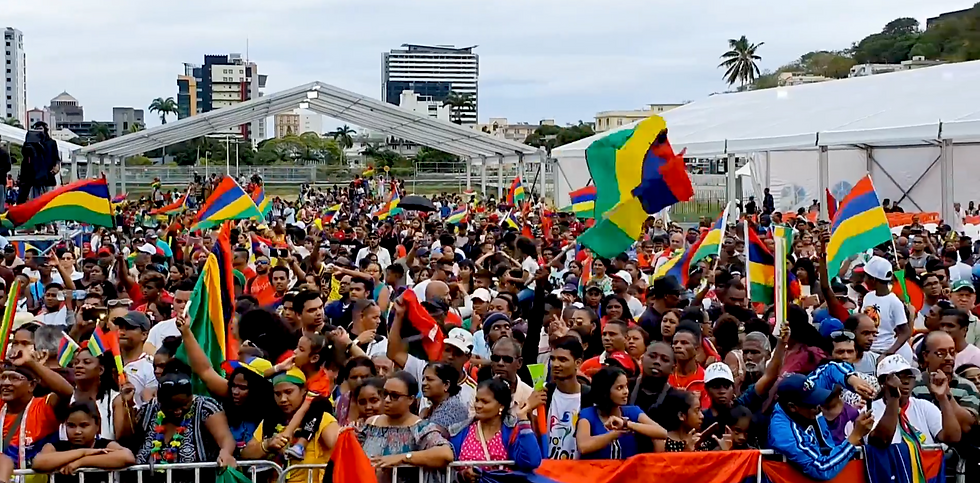Mauritius is a nation shaped by successive waves of immigrants from Europe, Africa, India, and China, arriving on an island with no indigenous population. As descendants of immigrants, Mauritians harbor no resentful feelings towards any ethnic group, as there is no ancestral claim to the land. The journey across oceans in search of a better life required qualities such as optimism, resilience, hard work, open-mindedness, and a willingness to learn. Forced to coexist, our ancestors fostered a spirit of mutual help essential for survival. These qualities are now part of the Mauritian DNA, seen in the nation’s ability to rebuild after natural disasters and adapt to economic changes, transitioning from agriculture to garment manufacturing, tourism, finance, and IT. This blend of diverse backgrounds and shared values has forged a unique and resilient Mauritian identity.
Optimism, Hard Work, and Resilience


“Mauritianism” embodies the nation’s commitment to multicultural harmony. Mauritius is home to a population primarily descended from Europe, Africa, India, and China, all coexisting peacefully. Major religious and cultural celebrations—such as Christmas, Diwali, Ramadan, and the Chinese Spring Festival—are honored with official public holidays. Peaceful coexistence in Mauritius is facilitated by mutual respect and tolerance, alongside a deep understanding of each other’s cultures and religions. The shared love for food and the genuine appreciation of diverse traditional cuisines have elevated many home dishes into national favorites. This recognition of each culture’s contributions strengthens the fabric of society and fosters national unity by honoring the island’s diverse heritage. Mauritius’s unity in diversity is like a salad bowl, where each ingredient, in the right proportion, enhances the overall flavor, symbolizing the island’s collective culture. Mauritians take pride in their ability to live together in peace and harmony, fostering a spirit of inclusivity and mutual respect in their multicultural society.
Mauritianism
The family unit is the cornerstone of Mauritian society. Achievements or misbehavior by any family member reflect on the reputation of the whole family. In a small country like Mauritius, news travels fast. Strong familial bonds and close-knit communities form the backbone of the social structure. Respect for elders, a sense of duty towards family, and a communal approach to life are deeply ingrained values. Community gatherings, religious festivals, and family events are integral to life, reinforcing the importance of unity and support. The sense of solidarity is expressed in a generous welfare state, offering free healthcare, education, pensions, and transport for elders, fully supported by the population. This solidarity underscores the Mauritian commitment to mutual support and collective well-being.
This recognition of the value in each culture’s contributions strengthens the fabric of society and fosters national unity by honoring the island’s diverse heritage.


The diverse ethnic origins and religious beliefs of Mauritian communities deeply influence worldviews, culture, and values. Indian laborers arrived empty-handed but brought dreams and a culture of tolerance and generosity, permeating the entire society. The Chinese, though fewer in number, significantly impacted society with their entrepreneurial spirit and Confucian values of respect for elders, hard work, and the importance of education, promoting self-sacrifice for future generations.